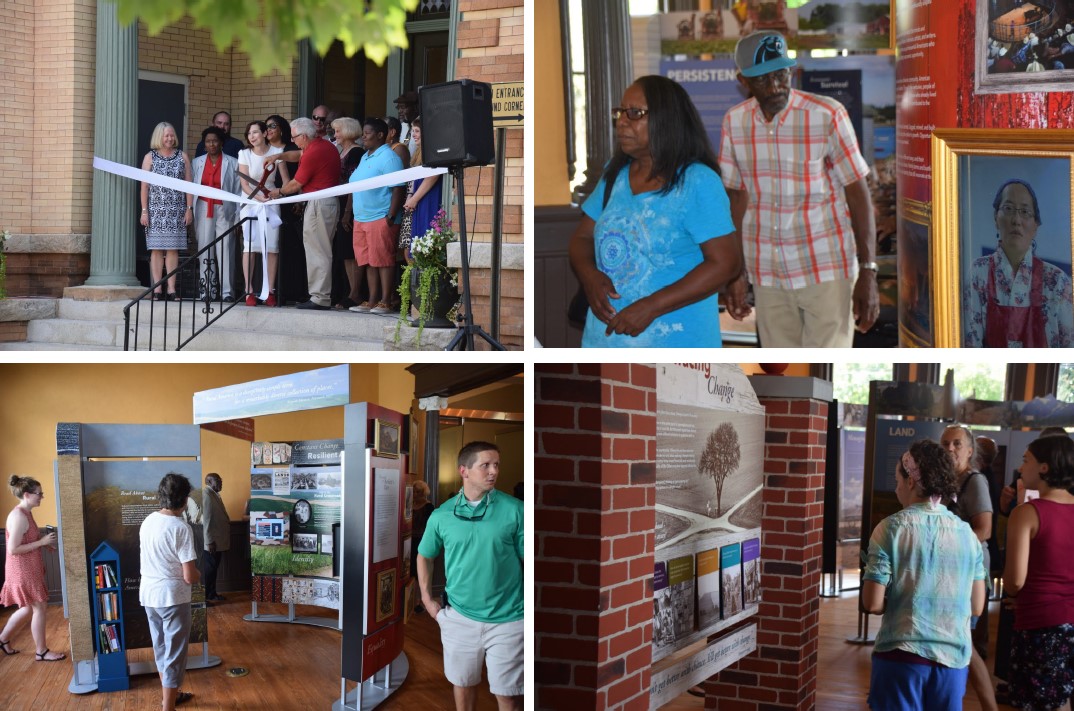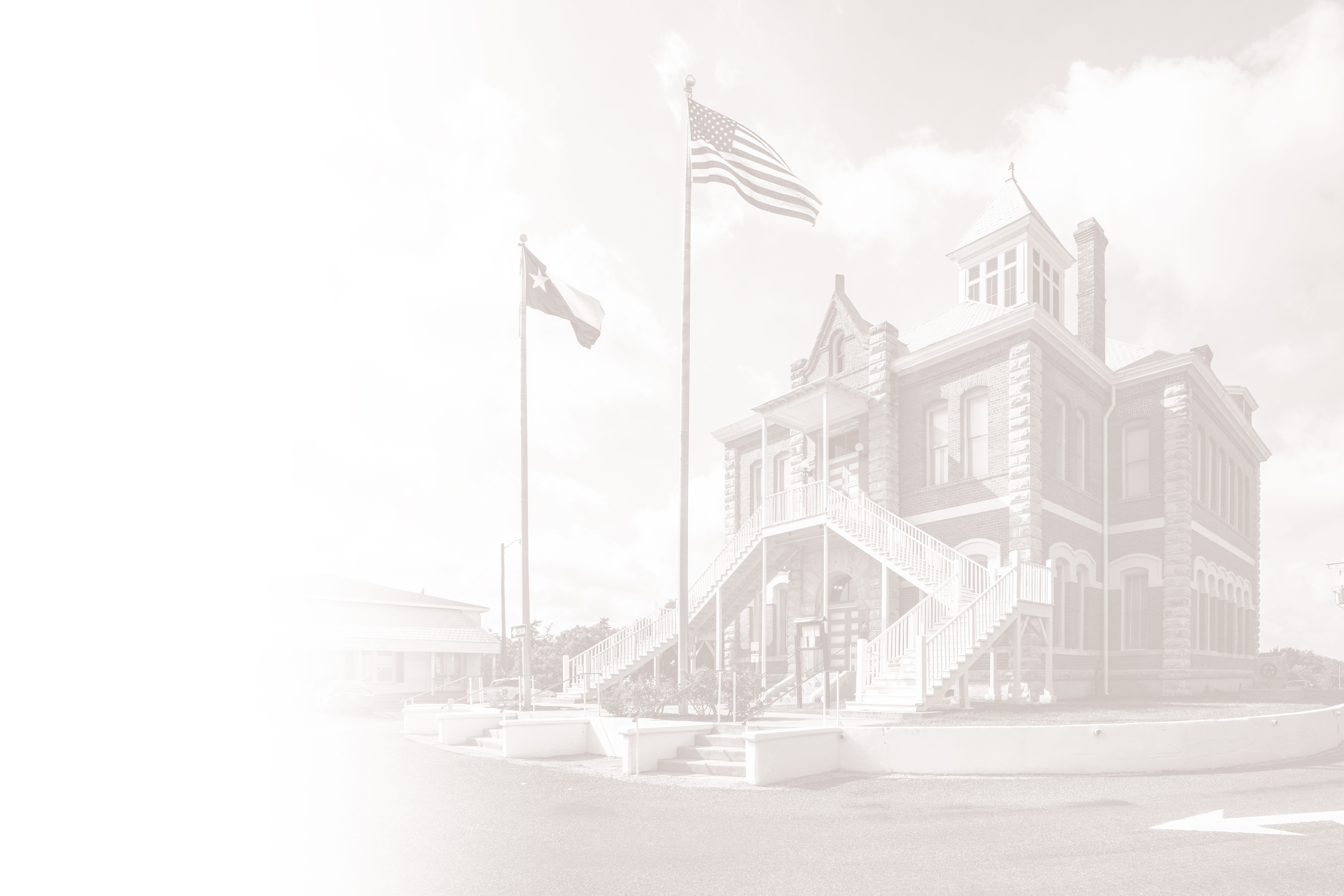
Created in 1994, Museum on Main Street (MoMS) is a traveling exhibition program of the Smithsonian Institution Traveling Exhibition Service (SITES) division, which aims to engage small-town audiences and revitalize underserved rural communities. Having served more than 1,800 U.S. communities with a median population of 8,000, MoMS is distinct from other SITES initiatives in its prioritization of small, rural populations and its emphasis on organizational capacity building and community engagement during the planning process leading up to the exhibit’s arrival.
Due to the program’s emphasis on capacity building in each host community, the Smithsonian relies on partners like us to manage the project at the state level. In this role, the heritage tourism team is responsible for coordinating the Texas tour and facilitating an extensive training plan that consists of exhibitions training, event and product development, community collaboration, marketing, fundraising, and more.
The application period for the 2024-2025 Museum on Main Street tour closed May 15, 2023. Check back in February 2025 for information on applying to host the next tour, Spark!
Have more questions? Check out a recording of our recent MoMS Info Session in which we answer your FAQs.
Find out more about our free Visitor Experience Workshops, touring Texas from February to June 2024.
More Than Museums: A Heritage Tourism Focus
Unlike other traveling exhibition programs at the Smithsonian, MoMS is unique in its focus on small, rural communities (population less than 15,000) and its emphasis on organizational capacity building. In fact, like the THC’s Heritage Tourism Program, MoMS uses history as a starting point for community engagement.
The work of hosting a MoMS exhibit typically begins 1–2 years before it arrives. This allows plenty of time for state coordinators (us) to work with each host community (you) to build project-planning skills, form organizational partnerships, develop local assets, and create visitor experiences that will not only ensure a successful MoMS exhibit, but also create positive, sustainable change in your heritage landscape.
Despite the name, this opportunity isn't just for museums or Main Streets. Downtown coordinators, tourism or preservation offices, certified local governments, and heritage organizations, in addition to museums and historic main streets, are encouraged to apply on behalf of their community.
Tour Schedule
A single tour typically lasts 10 months, stopping at seven communities across the state for six weeks each. However, the MoMS timeline begins 18–24 months before a tour launches, during which time our team works closely with each host community and its surrounding region.
About the Exhibits
Museum on Main Street exhibits are typically between 500 and 800 square feet in size, free-standing, and include replica objects in cases, interactive components, and audio and video presentations. Each exhibit covers a single topic of broad national interest, such as sports, food traditions, or labor history, and are designed to engage a wide range of communities and catalyze conversation about life in small-town America.
About the Training
With a national exhibit as a high-profile rallying point, this program offers a turnkey model for heritage tourism development in your community. In addition, the program is oriented to help you maximize geographic impact. Not only will we work with you to recruit organizational partners in the surrounding area, many of the training opportunities that we’ll organize in your community are meant to include those regional partners. Our comprehensive project consultation includes the following:
- Project Workplans: At the start of the project, HT staff work with hosts and their planning partners to create a workplan and timeline.
- Exhibition Design: THC Museum Services staff provide self-paced training to help you develop an accompanying local exhibit.
- Group Support: Idea-sharing and troubleshooting between host communities is a vital part of the collaborative training experience.
- Visitor Experiences: Through site visits and training workshops, HT staff assesses your current visitor experience and helps you improve it.
- Audience Data Analysis: Learn how to use visitor demographic information, provided by us to every host, to create an audience expansion strategy.
- Product Development: THC Heritage Trail Regions work with hosts and partners to create a regional travel resource (tour, passport, etc.)
- Communications/Marketing: With THC staff guidance, apply targeted marketing strategies and create dynamic campaigns that reach new audiences.
- Sponsorships: Develop a professional sponsor package with THC help to support MoMS in your town and establish relationships for future projects.
Contact Us
If you have questions about the Heritage Tourism Program, please contact the program administrator using the information listed here.
-
Phone:
+1 512-463-2630 -
Email:
thcheritagetourism@thc.texas.gov -
Address:
P.O. Box 12276
Austin, TX 78711
United States
